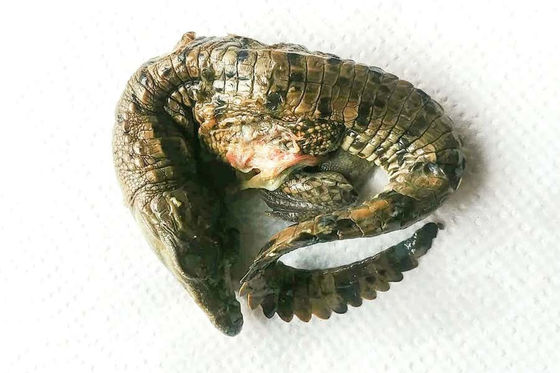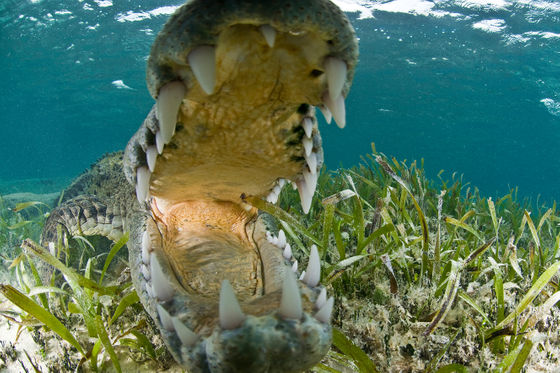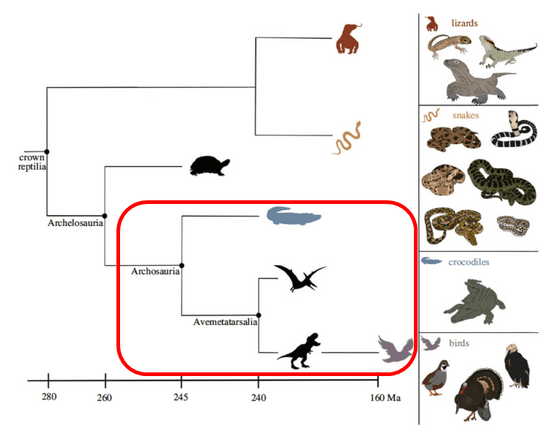First reported case of crocodile 'virgin pregnancy'

by
A paper has been published reporting that a female crocodile kept in a zoo has been confirmed to have laid eggs without contact with a male for the first time. This case of parthenogenesis , in which offspring are born with almost the same genes as their parents, almost like clones, provides important insights into how dinosaurs with the same ancestors reproduced, the researchers point out.
Crocodiles can reproduce without males – and maybe dinosaurs could too | New Scientist
https://www.newscientist.com/article/2377168-crocodiles-can-reproduce-without-males-and-maybe-dinosaurs-could-too/
'Virgin Birth' Ability Discovered in Crocodiles for the First Time Ever: ScienceAlert
https://www.sciencealert.com/virgin-birth-ability-discovered-in-crocodiles-for-the-first-time-ever
The parthenogenesis was confirmed in an 18-year-old female American crocodile (Crocodylus acutus) kept at a reptile zoo in Costa Rica. The crocodile had been kept in isolation for 16 years, but in 2018, a zookeeper discovered that she had laid 14 eggs. Oviparous animals often lay unfertilized eggs, but when the eggs were held up to the light, it was found that half of them had eggs.
Following a suggestion from Warren Booth of Virginia Tech, an expert on parthenogenesis, they decided to hatch the eggs, but they did not hatch. When they opened the eggs, they found that six of the seven contained an unidentifiable mixture of yolk and clumps of cells.
The remaining egg contained a dead but nearly intact baby crocodile, and when the baby's DNA was compared with that of its mother, the genome sequence was 99.9% identical, confirming that the baby was born asexually without a father.

When we think of genes that are almost identical, we think of clones, but in parthenogenesis, the embryo is born when the '
In addition to reptiles like crocodiles, fish and birds also reproduce asexually, but the reasons for this are still unknown. In the case reported this time, the mother crocodile was isolated from males, but since asexual reproduction can occur even when there are many males, it is thought that the absence of males is not related to this.
'We think this phenomenon is controlled by a single gene, but it may also be caused by hormones or there may be other factors involved,' Booth said.

This is the first case of 'virgin pregnancy' observed in crocodiles, but that's not the only reason it's attracting attention. The analysis suggests that the parthenogenesis observed in crocodiles is 'terminal fusion automixis,' in which the egg fuses with the 'second polar body' generated by the second meiotic division. This type of parthenogenesis has also been observed in snakes, lizards, and birds.
Therefore, the research team wrote in their paper, 'It is highly likely that parthenogenesis was inherited by these species from a distant common ancestor. This suggests that the origin of this reproductive mechanism dates back to the ancestors of birds and reptiles that lived at least 267 million years ago, and that female dinosaurs and pterosaurs were likely able to reproduce without males.

Although no eggs hatched this time, that doesn't mean crocodiles can't reproduce by parthenogenesis. 'Our findings provide intriguing insights into the reproductive capabilities of extinct crocodiles and bird relatives, particularly pterosaurs and dinosaurs,' the team wrote in their paper.
Related Posts:







